My cat's meow is weak and rough! Here are seven reasons
Have you ever noticed a change in your cat's meow? As if he suddenly became weak and rough, this change may raise anxiety in yourself, especially if your cat is noisy and energetic and a source of joy in the house with the sound of its soft meow.
Show key points
- A weak and rough meow in cats can be caused by laryngitis, which inflames the vocal cords similar to how it does in humans.
- Respiratory infections such as colds or the flu often lead to changes in your cat’s voice, accompanied by symptoms like sneezing, fever, and nasal discharge.
- Inadequate water intake or certain medications may lead to dry mouth in cats, resulting in hoarse and raspy vocalizations.
- ADVERTISEMENT
- The presence of a foreign object in your cat’s throat can cause discomfort and alter its meow, sometimes signaling a medical emergency.
- Respiratory allergies to environmental irritants like dust or chemicals can provoke asthma-like symptoms and affect your cat’s voice.
- Dental or gum diseases such as gingivitis can cause oral pain, influencing both your cat’s meow and its eating habits.
- As cats age, their vocal cords naturally weaken, leading to a softer and more subdued meow, often accompanied by other signs of aging.
In this article, we will embark on a journey to explore the seven most important reasons for this change. Get ready to better understand your cat and discover its secrets and the secrets of its voice.
Laryngitis
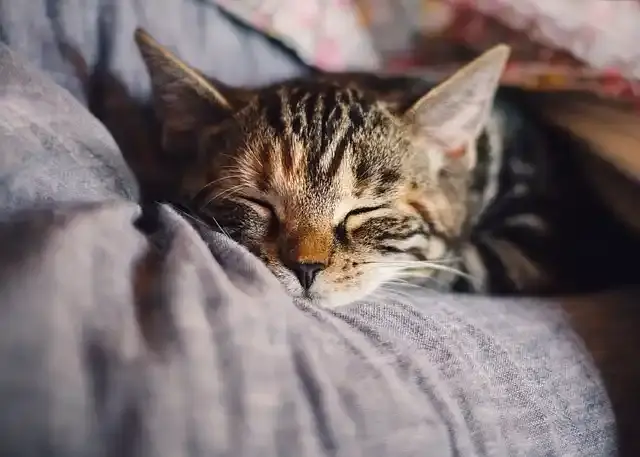
We can imagine that cats do not suffer from the same diseases or infections as we humans but the surprise is that cats sometimes suffer from laryngitis, just like humans. Laryngitis causes irritation of the vocal cords, resulting in this weak, coarse meow. Imagine that your cat is trying to express her desires, but her voice comes out loud, as if whispering a sad secret!
Recommend
Cold or flu
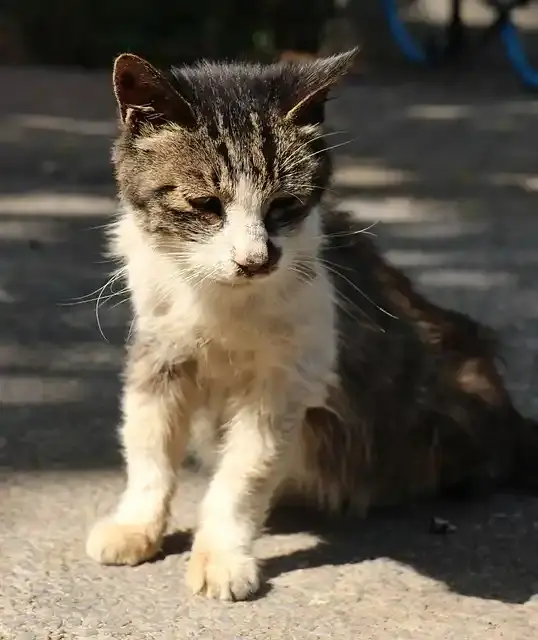
Influenza or cold is one of the most common causes of weak coarse cat meow, so you should monitor your cat and make sure that there are any symptoms associated with this worrying meow, such as a runny nose, sneezing or high temperature, as your cat may be trying to breathe with difficulty and her voice comes out intermittently, as if she is asking for help in a faint voice due to the annoying dry throat associated with the flu or respiratory tract infections.
Dry mouth
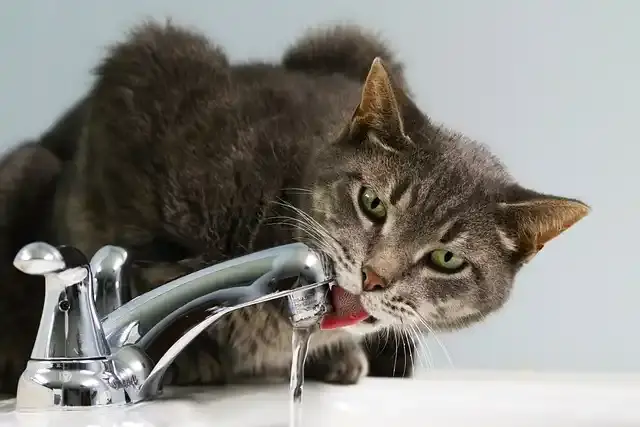
Dry mouth, resulting from lack of drinking water or some medications, can cause irritation in the throat and a weak rough meow as your cat feels thirsty, trying hard to get out her voice, but it comes out rough and hoarse, as if she complains of dry tongue, so you must make sure that the cat drinks enough water and seek the help of a veterinarian in the event of any side effects associated with taking any medication.
The presence of a foreign body in the throat
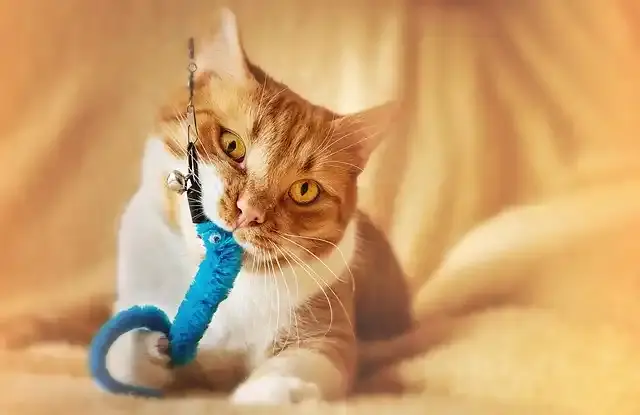
Your cat may be feeling tight in her throat, trying to get rid of something stuck, which makes the cat's meow come out rough and weak, as if warning of imminent danger. In rare cases, cats may swallow something they cannot get rid of, such as with children, and this thing may be a piece of food that they could not chew or even a small toy that she accidentally swallowed. So we should not forget that cats, just like children, do not realize what can harm them or He harasses her and our role is to always monitor them.
Respiratory allergies (asthma)
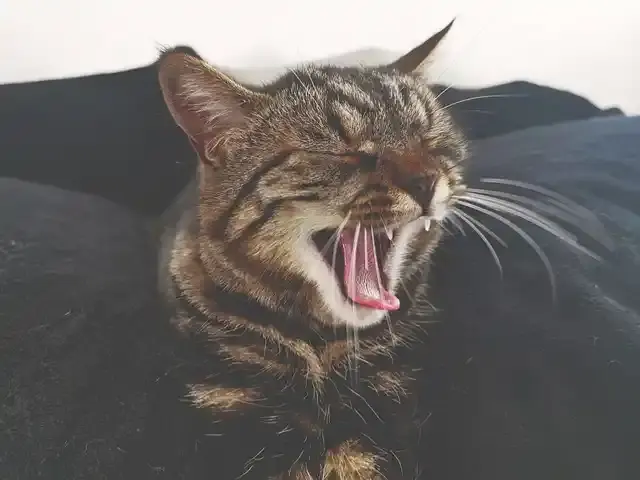
Some cats may suffer from allergies to dust, pollen or detergents, which causes irritation in the respiratory tract and a weak rough meow, so imagine that your cat suffers from itching in her nose, trying to sneeze and cough and get rid of the causes, and her voice does not come out, as if she suffers from shortness of breath, so you should go to the nearest veterinarian in the event that the cat approaches any substances that have a pungent odor, especially if the sound of its meow changes after that.
Diseases of the gums and teeth
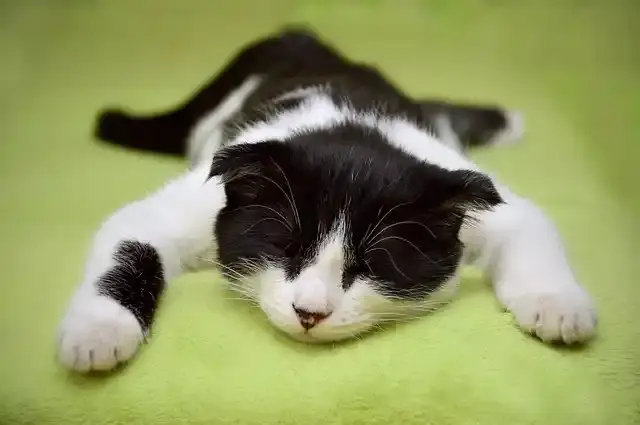
Dental diseases, such as gingivitis or tooth decay, cause pain in the cat's mouth, which may lead to weak and rough meow in addition to its interruption of food and drink, lethargy and a sense of weakness, it is very important to ensure that the cat's mouth is clean and wash its teeth periodically with cat brushes and veterinary paste and make sure that the gums are free of any swelling or strange signs and go to a veterinarian as soon as the cat stops eating.
Lifetime!
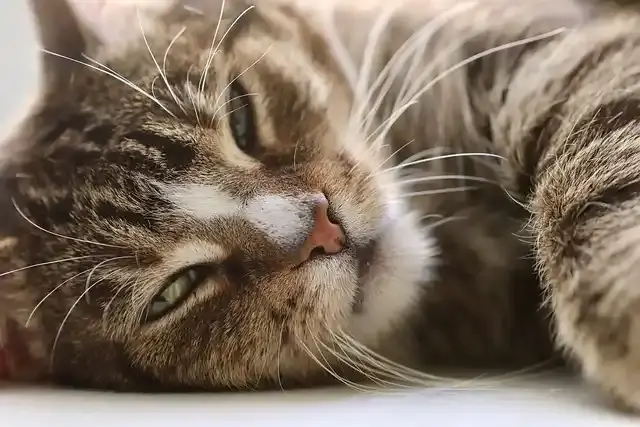
Your cat's voice cords, like any other organ on her body, can become weaker as she ages. We can visualize your cat's voice chords as guitar strings. Over time, these tendons lose some flexibility and stretching, making them emit a less pronounced and purified meow. But how do we know that the change in the sound of the cat's meow due to age? If the cat's age exceeds five years, cats have a much lower life cycle than humans and their aging age starts from the age of five years only! Her voice becomes like a whisper and she stops making loud sounds such as cries of joy or meows for help, and this may be accompanied by hearing impairment, so a calm environment should be provided for them, soft food should be provided and monitored with attention to maintain her comfort until the last moment.








